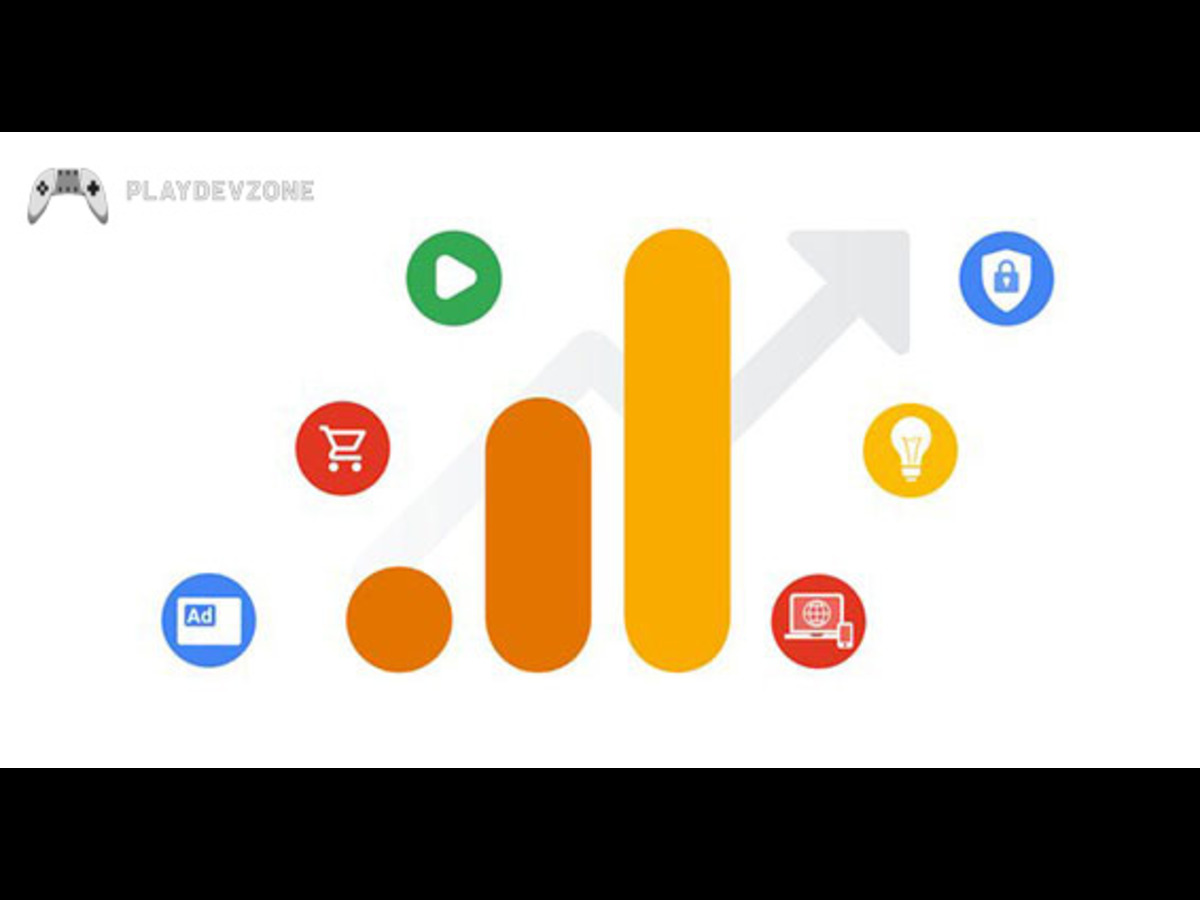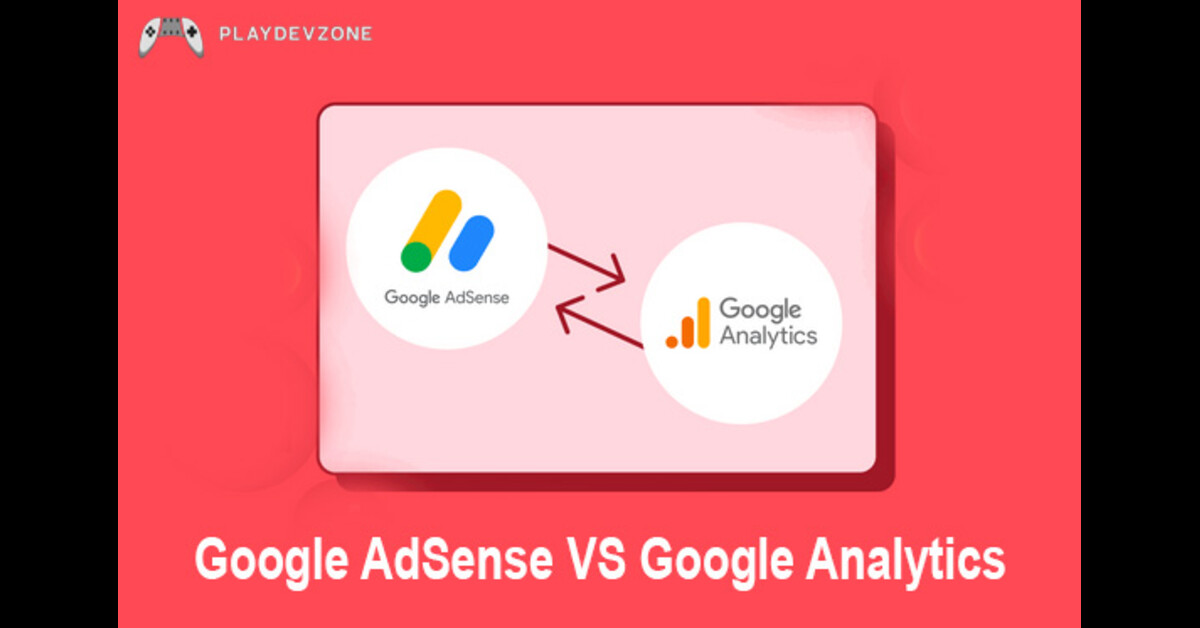Introduction
In the world of online monetization, data is the new currency.
Whether you’re a blogger, content creator, or digital marketer, understanding how to turn insights into income can make or break your success.
That’s where two of Google’s most potent tools, Google AdSense and Google Analytics, come into play.

At first glance, they may seem like separate platforms with different purposes: one helps you earn, the other enables you to analyze.
But when used together strategically, they can unlock a data-driven roadmap to maximize your website’s revenue potential.
In this post, we’ll dive deep into Google AdSense vs Google Analytics, uncover how data from Analytics can directly influence your AdSense earnings, and reveal proven strategies to monetize smarter, not harder. Ready to turn your traffic into profit?
Let’s explore how data can redefine your digital monetization game.
Understanding the Basics: Google AdSense vs Google Analytics
Understanding the Basics: Google AdSense vs Google Analytics is the first step toward unlocking your website’s earning potential.
While Google AdSense helps you generate income by displaying targeted ads to your visitors, Google Analytics reveals how those visitors interact with your site, where they come from, what they read, and how long they stay.
These tools create a powerful data-driven duo that guides smarter monetization decisions (Google AdSense VS Google Analytics).
By understanding how Analytics insights can optimize your AdSense strategy, you can increase ad performance, boost engagement, and turn traffic into sustainable profit.
Mastering these fundamentals isn’t just smart, it’s the foundation for long-term digital growth and success.
How Google Analytics Data Impacts AdSense Performance
How Google Analytics Data Impacts AdSense Performance goes far beyond simple traffic reports; it reveals the story behind every click and impression.
By analyzing user behaviour, session duration, bounce rate, and traffic sources, Google Analytics helps you identify which pages keep visitors engaged and drive the most ad revenue (Google AdSense vs Google Analytics).
These insights allow you to strategically place ads where they perform best, target high-value audiences, and eliminate underperforming areas.
When you connect Google AdSense with Analytics, you see how content quality and user experience affect your earnings.
The result? Smarter data-driven decisions that maximize your AdSense performance and turn your website traffic into consistent, optimized income.
Integrating Google Analytics with AdSense: A Smart Monetization Move
Integrating Google Analytics with AdSense: A Smart Monetization Move can completely transform how you understand and grow your online revenue.
By linking these two powerful Google tools, you gain a unified view of your website’s performance from visitor behaviour to ad engagement.
Google Analytics helps you uncover which pages attract the most attention, while AdSense shows where your ads earn the highest returns (Google AdSense vs Google Analytics).
Together, they empower you to make smarter, data-driven decisions that boost click-through rates and optimize ad placements.
This integration isn’t just a technical step; it’s a strategic move toward higher earnings, better user experience, and long-term digital success.
Start combining insights and watch your monetization strategy evolve effortlessly.
Data-Driven Monetization Strategies You Can Apply Today
Unlock your website’s earning potential with Data-Driven Monetization Strategies You Can Apply Today.
By using insights from Google Analytics and Google AdSense, you can move beyond guesswork and make smart decisions that actually boost revenue.
Analyze which pages get the most engagement, identify your top-performing content, and optimize ad placements where users are most active (Google AdSense vs Google Analytics).
Use metrics like bounce rate, session duration, and traffic source to fine-tune your content and ad strategy.
When you rely on data instead of assumptions, every click counts, leading to higher CTR, better conversions, and sustainable growth.
Apply these proven, data-driven tactics today and turn your traffic into a consistent profit stream.
Case Study: From Data to Dollars
Case Study: From Data to Dollars shows how innovative use of Google Analytics and Google AdSense can transform website traffic into real revenue.
An analysis of the behaviour of a growing blog identified its most engaging pages and optimized placements accordingly (Google AdSense vs Google Analytics).
With insights into session duration, bounce rates, and top traffic sources, the team strategically positioned ads where users were most likely to click.
The result? A measurable increase in click-through rates and overall AdSense earnings (Google AdSense VS Google Analytics).
This case study proves that data isn’t just numbers, it’s a roadmap to monetization success.
Any website owner can turn raw traffic into a consistent, profitable income stream by leveraging analytics insights.
Common Misconceptions About AdSense and Analytics
Common Misconceptions About AdSense and Analytics often prevent website owners from maximizing their revenue potential.
One widespread myth is that more ads automatically mean more earnings. Excessive ads can harm user experience and reduce overall click-through rates.
Another misconception is that Google Analytics is only for tracking traffic. In fact, it provides invaluable insights into audience behaviour, engagement, and high-performing content, which can directly influence AdSense revenue.
Many also believe ad performance is purely luck, ignoring the power of data-driven optimization (Google AdSense vs Google Analytics).
Understanding and debunking these myths allows you to make smarter monetization decisions, enhance user experience, and strategically use Analytics and AdSense to turn traffic into sustainable income.
Future of Data-Driven Monetization
The Future of Data-Driven Monetization is evolving faster than ever, fueled by advancements in AI, machine learning, and predictive analytics.
Website owners who leverage insights from Google Analytics and Google AdSense can anticipate audience behaviour, optimize ad placements in real-time, and create personalized content that maximizes engagement and revenue (Google AdSense VS Google Analytics).
Data is no longer just a tool for reporting; it’s a strategic asset that shapes monetization decisions and drives sustainable growth.
As digital landscapes become more competitive, those who adopt a forward-thinking, data-centric approach will outperform their peers (Google AdSense vs Google Analytics).
Embracing these innovations today ensures your website is not just surviving but thriving, turning every click, view, and interaction into measurable profit.
FAQ (Frequently Asked Questions)
What is the difference between Google Analytics and AdSense?
The difference between Google Analytics and Google AdSense lies in their purpose and functionality.
Google Analytics is a powerful tool for tracking and analyzing website traffic, user behaviour, engagement, and conversion patterns.
It tells you how visitors interact with your content, which pages perform best, and where improvements are needed.
On the other hand, Google AdSense is a monetization platform that helps you earn revenue by displaying ads on your website.
While Analytics provides insights to understand your audience, AdSense turns that audience into income.
Together, they form a data-driven duo: Analytics guides smarter content and ad placement decisions, while AdSense converts those insights into revenue, maximizing your website’s earning potential.
What is monetization in Google Analytics?
Monetization in Google Analytics refers to tracking, measuring, and optimizing how your website or app generates revenue.
It goes beyond counting visitors; it provides detailed insights into which content, products, or pages drive income through ads, e-commerce sales, or in-app purchases.
By analyzing transaction value, revenue per user, and ad performance, website owners can identify high-performing areas and optimize strategies to boost earnings (Google AdSense vs Google Analytics).
When combined with platforms like Google AdSense, monetization data helps you make data-driven decisions to improve ad placement, content strategy, and audience targeting.
Monetization in Analytics turns raw traffic into actionable insights for maximum revenue growth.
Is there anything better than AdSense?
While Google AdSense is one of the most popular monetization platforms due to its ease of use and reliable payouts, several alternatives can outperform it depending on your website’s niche, traffic, and goals.
Platforms like Media.net, Ezoic, PropellerAds, and Amazon Associates offer competitive CPMs, advanced targeting options, or affiliate-based revenue models that may generate higher earnings.
The key is understanding your audience and experimenting with multiple monetization channels.
Combining AdSense with alternative networks or affiliate marketing can create a diversified income stream, reducing dependency on a single platform.
Ultimately, what’s “better” depends on your site’s content, traffic quality, and monetization strategy, and testing is the fastest way to maximize revenue.
What are the 5 benefits of data analytics?
Data analytics is a game-changer for businesses, websites, and digital marketers, offering insights that drive smarter decisions and measurable growth.
Informed Decision-Making: Data analytics transforms raw numbers into actionable insights, helping businesses make evidence-based decisions rather than relying on guesswork.
Improved Customer Understanding: By analyzing user behaviour, preferences, and engagement, you can more effectively tailor products, content, and services to meet audience needs.
Revenue Optimization: Platforms like Google Analytics reveal which pages or campaigns generate the most income, allowing for strategic ad placement, pricing adjustments, or monetization improvements (Google AdSense vs Google Analytics).
Operational Efficiency: Analytics identifies workflow bottlenecks and inefficiencies, enabling organizations to streamline processes and save time and resources (Google AdSense VS Google Analytics).
Predictive Insights: Advanced analytics and machine learning can forecast trends, helping businesses anticipate demand, optimize marketing strategies, and stay ahead of the competition.
In short, data analytics turns information into strategy, allowing website owners and marketers to enhance user experience, increase revenue, and maintain a competitive edge in today’s digital world.
Is 500 subscribers enough for monetization?
Whether 500 subscribers are enough for monetization depends on your chosen platform, niche, and monetization strategy.
The minimum requirement for AdSense monetization on platforms like YouTube is 1,000 subscribers and 4,000 watch hours within the past 12 months, so 500 subscribers alone won’t qualify.
However, having 500 engaged subscribers is a strong starting point, especially for other monetization methods.
For instance, you can leverage affiliate marketing, sponsored posts, or selling digital products directly to your audience.
Even a smaller, highly engaged subscriber base can generate meaningful revenue if your content resonates and your offers are relevant (Google AdSense vs Google Analytics).
Additionally, 500 subscribers provide valuable feedback and insights that can help you refine your content strategy, increase engagement, and attract more viewers.
The key is focusing on quality over quantity, building trust, and expanding your audience gradually.
Those initial 500 subscribers can become the foundation of a sustainable and profitable online business with consistent effort.
Understanding Google AdSense vs Google Analytics is more than just knowing the difference between earning revenue and tracking data; it’s about harnessing insights to maximize monetization strategies.
Google Analytics provides the critical information you need to understand your audience, track behaviour, and identify high-performing content.
When combined with AdSense, this data empowers you to place ads, optimize engagement, and increase revenue strategically.
By adopting a data-driven approach, website owners and digital marketers can turn traffic into measurable profit, make smarter decisions, and continually refine their strategies.
Whether you’re a blogger, entrepreneur, or content creator, mastering the synergy between these tools is key to sustainable growth.
Start analyzing your data today, apply actionable insights, and watch your website transform from mere traffic to a reliable, revenue-generating asset.

